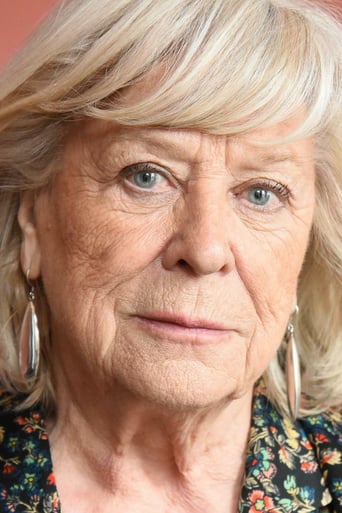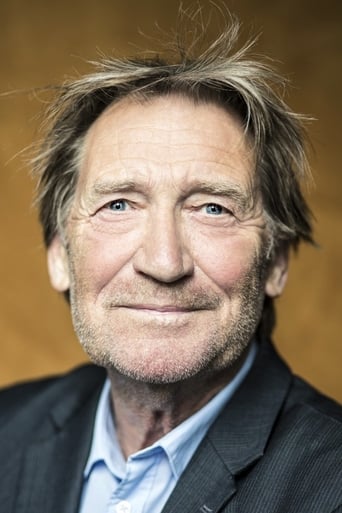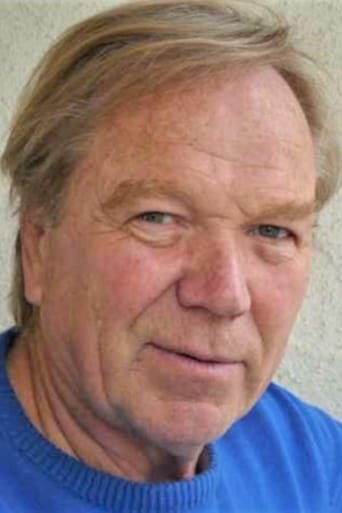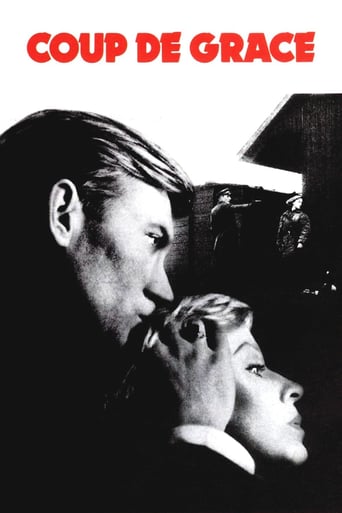
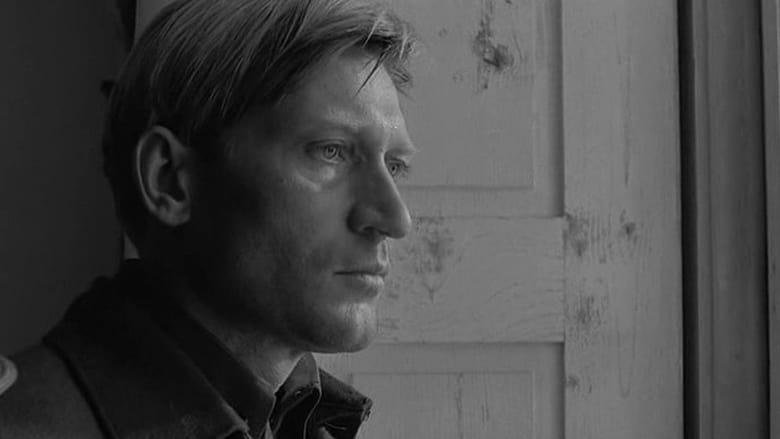
Coup de Grâce (1978)
A countess loves her brother's Prussian-officer friend in the 1919 Baltic area.
Watch Trailer
Cast


Reviews
Coup de grâce refers, of course, a finality. Often it means a bullet to the head or something similar to make certain the subject is dead. The original title is Der Fangschuß.In this German and French language film, covering the period just after World War One, and filmed in a dull black and white that evokes the drab, colorless and perhaps hopeless world for many in the war's aftermath. Set in ravaged Latvia where the Czar had previously allowed a number of aristocratic wealthy Germans to continue to own estates with sumptuous homes. Among these, Countess Sophie de Reval has allowed herself to become attached to the promise of Communism. Despite the German Empire's collapse, German troops nevertheless have been stationed in the region, ostensibly to protect the German citizens from Bolshevism. Since this was formerly a part of Mother Russia, many locals want to see the return of Czarist Russia of the past while some hope for a republic and others only wanting an end to all the strife and horror of war. They only desire a peaceful home for themselves and their children. One of the German officers who has returned to his former homeland, happens to be a gentleman the countess has known since childhood. Once they meet, her former passion re-ignites and when he rebuffs her advances, she begins to throw herself at him. Finally, unable to achieve fulfillment with the officer, the countess releases her sexual desires with others, making this a film destined more for adults, despite the fact that there are really no outright graphic sexual scenes. As mentioned earlier, the drab hopelessness of the period is only accentuated by the low-key black and white film production. This is not an action-packed suspense film, but rather a study in human values and emotions during times of trial. One comment is that the subtitles in English are not well- incorporated into the film and many will find them difficult to follow, especially considering that the film does have a number of abrupt changes of scene. For all that, this is a film many will not quickly forget.
The film begins in Latvia just after WWI. Being a history teacher, I knew that multinational troops occupied much of Russia during this time. There was serious concern about the spread of Bolshevism and the troops were there ostensibly to protect their nations' interests. However, some times they flew missions or had armed conflicts with the Communist army, as the nations involved really wanted to see the so-called "Whites" win. However, the Whites were deeply factionalized--some wanting the return of a czar, some wanting a republic and some wanting something in between. Because of these mixed goals and a lack of a real commitment by the foreign armies, the whole expedition was doomed and left the USSR after only a year or two. However, what I did NOT know was that German troops were also involved. This surprised me, as they had just lost WWI and weren't in the best shape to be mounting such an expedition.This is the backdrop for the film, but it's also about a pro-Communist rich lady and her ill-fated love for a childhood friend who is among the German troops. She throws herself at him repeatedly but in each case he rebuffs her. So, she then sublimates these desires by various affairs. While none of this sex is all that graphic, this and the underlying reason the man isn't interested make this a rather adult film and one I wouldn't show to younger audiences.While the setting for this film is interesting, the overall film is as gray and lifeless as any I have seen. I don't recommend it unless you are an amazingly patient person or you are really into overrated German films. I especially warn away anyone who suffers with depression, as it will no doubt make it worse. The simple fact is that there are so many better German films out there waiting to be seen--such as MOSTLY MARTHA, DAS BOOT, MOTHER KUSTERS GOES TO HEAVEN, WINGS OF DESIRE or ALI, FEAR EATS THE SOUL (among others).
In a depopulated part of northeastern Europe, desperate men are fighting a hopeless, pointless war after the Great War has ended. It is the winter of 1919-1920 in Latvia, and the Treaty of Versailles will soon establish the independence of the Baltic states. Schlondorff has taken Yourcenar's novel and made a wonderful mood piece out of it. The acting is great: Matthias Habich is stiff and uncomprehending, Margarethe von Trotta is warm and lively as well as passionately Bolshevik, Valeska Gert, whom I remember from a Louise Brooks silent film, is the half-crazy aunt.Schlondorff's films are tremendous literary adaptations that stand on their own as film creations. I see the world a little through his eyes, just as I see it through Renoir's, or Bertolucci's, or Altman's.
**Film plot and ending analyzed**The Baltic states in 1919 are witnessed two years after the Russian revolution, the country is torn by civil war between the Whites and the Reds and the old Prussian nobility that realizes that this is no longer Germany. Konrad and his volunteer corps have withdrawn from Reval to his parents' castle in Kratovice determined to defend the outdated feudal system. Konrad's sister Sophie maintains friendly relations with the rebels, especially Gregori Loew, the son of the Jewish village tailor. Although she shares his views, she lacks the strength to tear herself out of her surroundings. She falls more and more deeply in love with Konrad's friend Erich von Lhomond, a dashing gentleman rider who "likes to fight a losing battle" because he would only be an insignificant figure in ordinary life. He is not particularly interested in women and is attracted much more strongly to Konrad than to Sophie. He brutally rejects her love but responds more and more jealously as she throws herself headlong into various affairs with his comrades in the corps. Things come to a head at Christmas: when Sophie kisses young Volkmar von Plessen, who wants to marry her, Erich slaps her in front of her aunt and the other officers. She only admits to her love once more. Erich orders her to wait until he returns from a foray against the Bolsheviks. However, Sophie has in the meantime learned the truth about Erich von Lhomond and her brother. She sharply demands an answer from her beloved and then leaves the castle to join Gregori Loew and his band of rebels. The situation in the Baltic has become hopeless for Lhomond and his fighters. Konrad has been killed in one of the last battles and the remainder of his troop decides to head for Germany. Sophie and her comrades are captured by Erich in a battle for a farm during which Gregori Loew is killed. The other rebels are shot at Lhomond's command. Sophie demands that Erich execute her himself. Volker Schlöndorff had first come across Marguerite Yourcenar's novel "Der Fangschuss" in 1965 while working on his film TÖRLESS. Even then, he had been attracted by the idea of making a film based on the novel by an author who had become famous for her historical novels and was the only woman in the Académie Française. FANGSCHUSS follows on from TÖRLESS in both form and content, both films displaying the same respect and caution towards the literary original; both are produced in black-and-white and both are basically about suppressed sexuality and reactionary behaviour with the aim of revealing sadomasochistic relations and fascist tendencies. Volker Schlöndorff has by no means left the political arena to concentrate on a historical subject or purely human problem in this film, which was produced one year after the sensational success of DIE VERLORENE EHRE DER KATHARINA BLUM; the "problematical relationship between men and women" (Volker Schlöndorff) portrayed by the film in the form of a highly dramatic affair is closely related to the social and historical background of a struggle between supporters of the old order and the supporters of new social ideas. Sophie is not only driven to join the rebels by Erich's emotional coldness and the humiliating realization that he used her to come closer to her brother, but also by her revulsion of war and the male solidarity among the officers, as well as by the realization that they need the war "in order to live out their lives" and satisfy their secret cravings. Schlöndorff clearly contrasts the scenes showing the private relations and strains between the protagonists with scenes showing the fight against the rebels and the shooting of prisoners. The leading actors and particularly Margarethe von Trotta have prevented the film from fulfilling its intention of telling the "story of an act of humiliation ending in revolt" (Schlöndorff). Margarethe von Trotta's Sophie remains a shadowy figure capable of expressing her anger and defiance at Erich's cool remoteness, but she fails to display the emancipation of a woman who sees through the men's military madness and rebels against it. Sophie's revolt is emotional, not political. However, the subject of Sophie's desire, the handsome Erich, is also a somewhat pale figure and the erotic triangle between Erich, Konrad and Sophie is created in the viewer's imagination rather than in the reality of the film. Schlöndorff's film thus lacks the dramatic core intended by the director, but he compensates this shortcoming with dense atmospheric images of the barren snowscape and the castle's rundown interiors. With their black-and-white shading and their grey tones reminiscent of the films produced by Jean-Pierre Melville, Schlöndorff's "first mentor" to whom this film is dedicated, these images evoke a decaying, dying world in which real, open relations between people have become impossible. Despite the weakpoints in the screenplay and in the handling of the actors, this gives DER FANGSCHUSS a dramatic presence making the historical situation transparent to the present on at least an emotional level if not on an intellectual plane. It is a powerful film... full of noise and furor...


